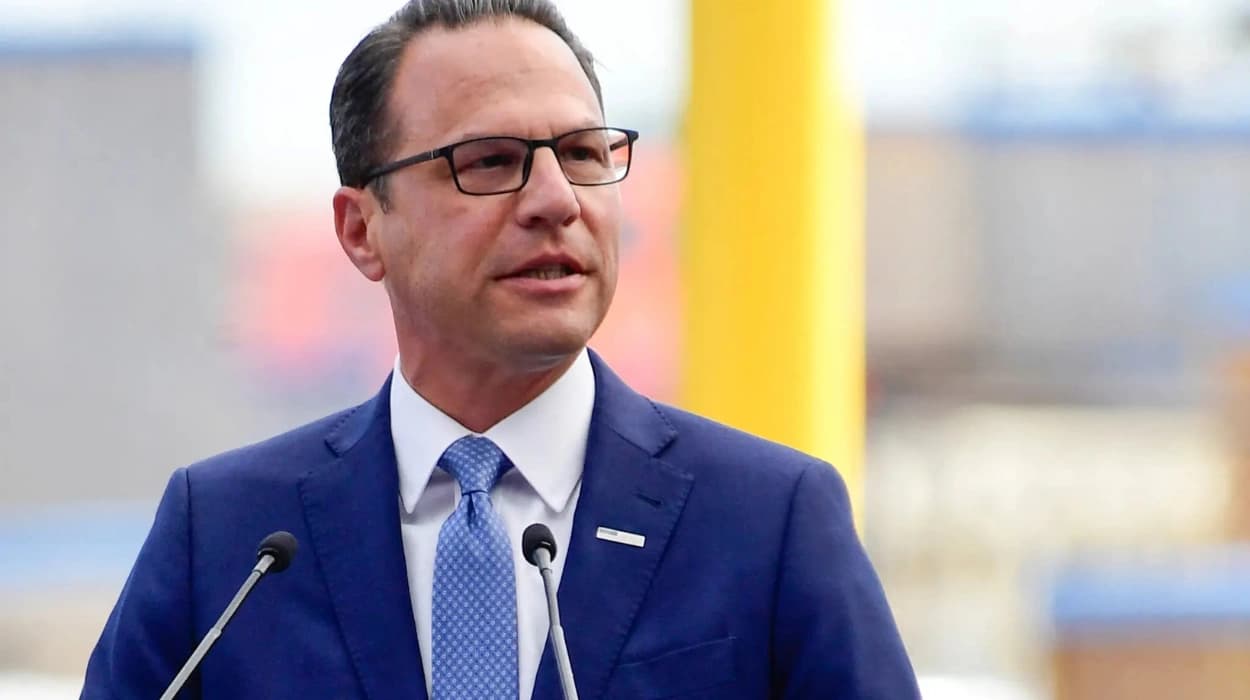Summary
- Pennsylvania Gov. Josh Shapiro says arson attacks left emotional scars.
- An attack on his home took place during Passover in April 2025.
- Suspect Cody Balmer charged with attempted murder, arson, terrorism.
At this week's Eradicate Hate symposium in Pittsburgh, which aims to address strategies and actions that might prevent and counter violence, Shapiro spoke about the arson attack and political violence.
Shapiro listed a number of targeted violent incidents that occurred in the previous year, such as the assassination attempt on Donald Trump, the murder of the CEO of United Healthcare, the shooting death of Melissa Hortman and her husband, and the assassination of Charlie Kirk. He claimed that "people using violence to settle political differences" was the one thing they had in common.
“Leaders have a responsibility to speak and act with moral clarity – and as I have made clear time and time again, this type of violence has no place in our society, regardless of what motivates it, who pulls the trigger, who throws the Molotov cocktail, or who wields the weapon,”
he said.
It is the duty of individuals to denounce all types of political violence in a "clear and unequivocal" manner. He chastised those who have praised political violence against their rivals and those who have demanded retribution after it has occurred.
“Unfortunately, some the dark corners of the Internet all the way to the Oval Office want to cherry pick which instances of political violence they want to condemn,”
he said.
“Doing that only further divides us and it makes it harder to heal. There are some who will hear that selective condemnation and take it as a permission slip to commit more violence, so long as it suits their narrative or only targets the other side.”
The Trump administration has stated that it will target left-leaning organizations in the wake of Charlie Kirk's death, claiming without proof that they were connected to the attack.
Using the government to censor people and "silence people, silence businesses and nonprofits, and restrict their right to free speech" will only increase suspicion, according to Shapiro, who also stated that these actions of vengeance will widen the gulf.
The governor also spoke about his personal encounters with political violence. Shapiro, his wife, and their children were inside the Pennsylvania governor's mansion when it was set on fire by a man during Passover in April. Shapiro claimed that when he awoke, a state officer knocked on his door and ordered him to leave because of a fire.
Police charged Cody Balmer with attempted murder, terrorism, and other offenses related to the attack. Balmer was allegedly inspired by "perceived injustices toward the people of Palestine," according to the police. Shapiro has Jewish ancestry.
Shapiro expressed his gratitude to God every day for his family's safe evacuation and the fact that no one was hurt or murdered.
“That doesn’t mean that the attack hasn’t left emotional scars,”
Shapiro said.
“I can attest to that, especially as a father, a father to four children, knowing that my life choices put them at risk.”
He called the rise in political violence dangerous because it not only seeks to injure or kill opponents but to intimidate people into silence.
“I’m here today to tell you that I will not be deterred in my work on behalf of the good people of Pennsylvania and I sure as heck will not be silenced,”
he said.
What did Shapiro say about political violence in his remarks?
Political leaders should denounce every instance of political violence and reject "the rhetoric of vengeance," and that things like violence are "universally inappropriate" and that they "make us all less safe." He called for clear, unequivocal denunciation that political violence, at a minimum, should not be hard to do.
Shapiro explained political violence is not only about injuries or death, but terror, silencing, and is "ripping at the fabric of American Society." And Shapiro cautioned against using violence to justify further violence or suppress the speech that is inherently protected by the Constitution.
Shapiro criticized the selective condemnation of political violence by some of those including both from "dark corners of the internet" to the Oval Office who would condemn only the violence they wanted to condemn.

